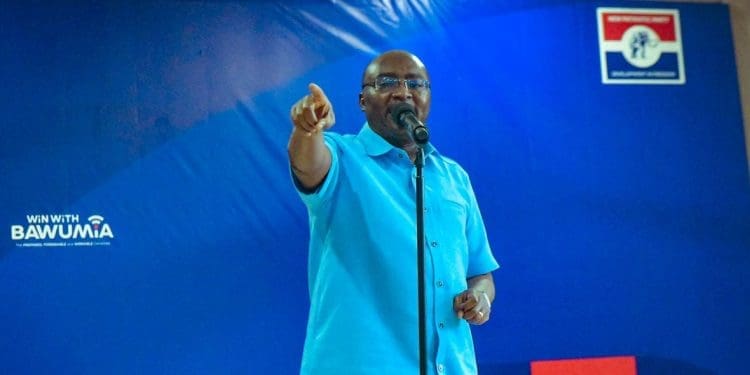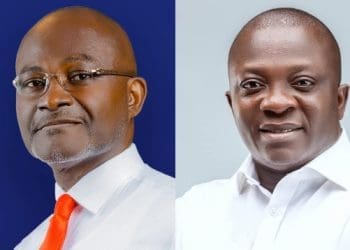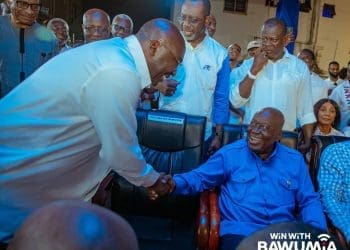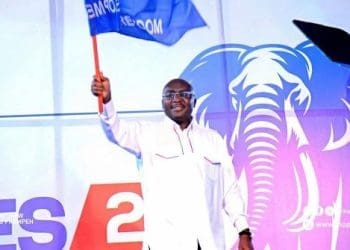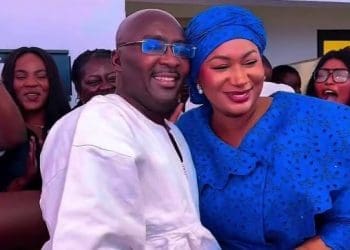Former Vice-President and 2024 New Patriotic Party (NPP) Flagbearer, Dr. Mahamudu Bawumia, has begun a commanding march through the party’s strongholds and battlegrounds, securing loud and visible endorsements from executives, Members of Parliament, and grassroots leaders in the Ashanti, Eastern, Central, and Greater Accra Regions.
His campaign tour, which began in early September and stretched into October, has been described by observers as the most electrifying show of grassroots power the NPP has seen in recent years.
The election, set for January 31, 2026, will determine who leads the NPP into the crucial 2028 general elections. While several names have surfaced as potential challengers, the groundswell of support for Dr. Bawumia across the four regions appears to be tilting the race heavily in his favour.
Ashanti Region: The heartbeat of NPP roars for Bawumia
If there was any doubt about where the party’s traditional base stands, the Ashanti Region answered loudly during Dr. Bawumia’s three-day tour from September 10 to 12, 2025.
In constituency after constituency, the atmosphere resembled a festival rather than a political tour.
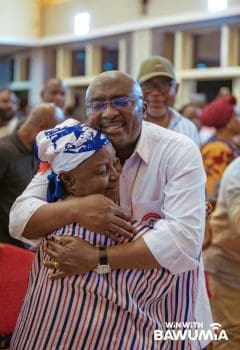
From Adansi Akrofuom to Bekwai, Konongo, Effiduase, Mampong, Offinso, Abuakwa, and Ahodwo, thousands of party members, executives, MPs, elders, and youth groups poured into rallies and town hall meetings. They chanted slogans such as “No change,” “Bawumia, no challenger,” and “Chart no ato! Bawumia is the man.”
At Konongo, the crowd spilt into the streets, forcing his convoy to slow down as supporters surrounded his vehicle, waving flags and chanting.
In Mampong, party elders invoked history, recalling how the Ashanti Region has always provided the decisive voice in NPP contests.
They urged delegates not to gamble with the party’s future by replacing the 2024 flagbearer.
Executives praised Bawumia’s loyalty, intellect, and work ethic. One constituency chairman at Effiduase declared, “He has shown us that politics is not just about slogans but solutions. His vision for digitalisation, for modernising our economy, has already shaped Ghana in profound ways.”
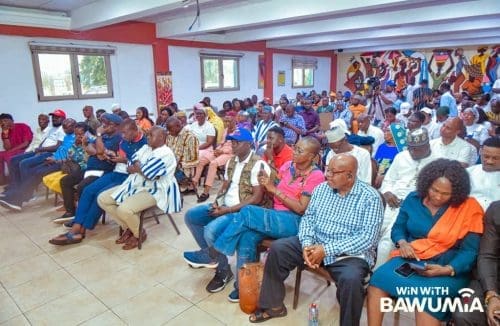
Several MPs joined the chorus. At Abuakwa, one MP told delegates: “We have seen it in Ghana’s electoral history. Leaders often succeed on the second attempt. To remove Dr Bawumia now is to waste the investment we have made in him and in his vision. He is our best chance for 2028.”
The Ashanti tour confirmed one thing: the party’s base sees Bawumia not just as a candidate, but as a movement.
Eastern Region: A campaign of listening and inclusion
After the roaring energy of Ashanti, Dr. Bawumia shifted gears in the Eastern Region, where his two-day tour on September 24 and 25 emphasised inclusiveness and dialogue.
Rather than delivering lengthy speeches, he walked into crowds, asked questions, and sat with constituency executives in open conversation.
Executives were visibly struck by his approach. A senior regional officer at Koforidua said: “We have never seen a leader so approachable. He doesn’t just visit for show. He listens. He makes us feel included. It is not politics as usual. It is about building relationships.”
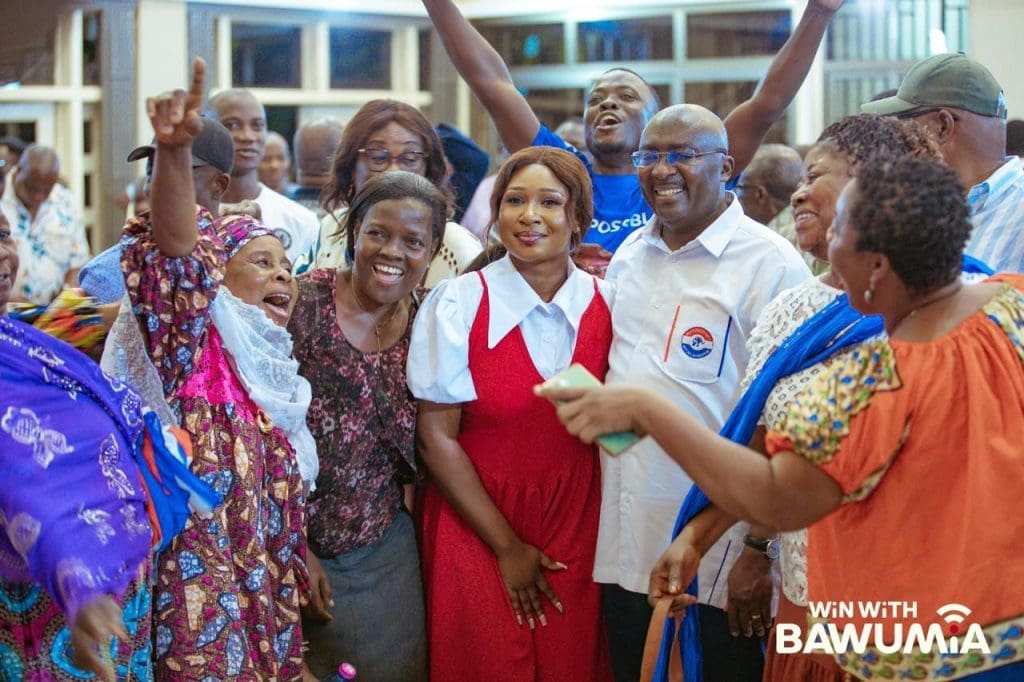
At Suhum, he was welcomed by both older party stalwarts and younger activists, who praised him for bridging the generational divide.
“He respects our experience but also inspires the youth,” one youth organiser said.
“He makes them believe they, too, can shape the future of the NPP.”
Fifteen MPs from the region, out of 23, boldly declared their support for Dr. Bawumia.
The list included high-profile figures such as Kojo Oppong Nkrumah (Ofoase Ayirebi), Frank Annoh Dompreh (Nsawam Adoagyiri), and Sammi Awuku (Akuapem North).
Their statement, read by Achiase MP Kofi Ahenkorah Marfo, was emphatic: “We are clear in our minds that Dr. Bawumia is the best candidate to lead us to victory in 2028.
He has been Ghana’s most impactful Vice President, and now he must be our flagbearer.”
The MPs went further to caution the party against replacing him. “After all the propaganda of 2024, today, Ghanaians are seeing that Bawumia was right on many issues. To change him now would be setting ourselves back 16 years.”
In Abirem, an elderly party woman summed up the sentiment: “He is humble. He is respectful. He is effective. What more do we need?”
Central Region: Endorsements from the battleground
The Central Region, Ghana’s unpredictable political swing belt, also turned out in force for Dr. Bawumia.
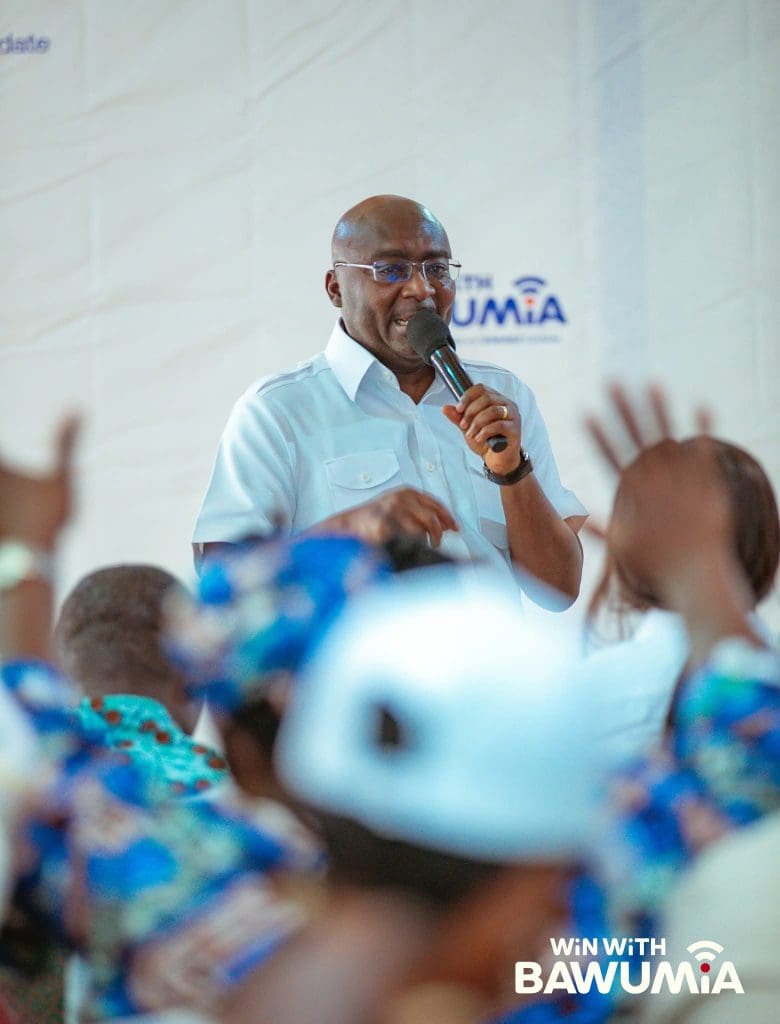
On September 29 and October 2, 2025, he met with executives and former appointees in Cape Coast and Assin Fosu.
Here, the endorsements carried strategic weight. The region is often described as the kingmaker in national elections, and the executives made it clear they wanted Dr. Bawumia to lead the charge in 2028.
Party leaders praised his inclusiveness and accessibility. A former regional minister remarked: “He doesn’t just tell us what to do. He asks us what we think. He brings people along. That is real leadership.”
Executives stressed that many of his much-criticised proposals during the 2024 elections are now vindicated by the results.
“When he spoke of digitalisation, many laughed. Today, it is changing lives. That is foresight. That is vision,” one constituency chairman said.
They pledged to make the Central Region a fortress for Bawumia, mobilising youth, women, and community leaders.
“We cannot allow the progress we have made to be reversed. Bawumia is the candidate who can win here,” they declared.
At Assin Fosu, the mood was almost defiant. A young party organiser told the gathering, “We know the NDC thinks this region belongs to them. We will show them in 2028 that with Bawumia, Central is NPP land.”
Greater Accra Region: The market women’s warning
If Ashanti was a roar and Eastern a dialogue, the Greater Accra tour from October 1 to 5 was a demonstration of grassroots pragmatism.
Executives across constituencies declared him the “most winnable candidate,” but it was the voices from the markets and streets that carried the strongest warning.
At Dome Market, market women told Trobu MP Gloria Owusu that if the NPP failed to retain Dr. Bawumia as flagbearer, they would turn their backs on the party.
“We don’t want insults. We don’t want arrogance. We want a leader who respects us. Bawumia is the one we know,” they told her.
Madam Owusu relayed their sentiments at a rally in Amasaman, saying: “The market women are clear.
If we betray them by changing Bawumia, the consequences for the NPP will be dire.”
Executives in constituencies such as Trobu, Anyaa Sowutuom, and Dome Kwabenya reinforced this position.
They argued that the 2024 defeat was not Dr. Bawumia’s fault, but rather the party’s failure to strengthen grassroots engagement.
“He has never abandoned the people. He connects with them. That is why he remains our best hope,” a constituency chairman said.
Former and current executives across the region promised to mobilise communities and strengthen local structures.
They said their endorsement was not just about loyalty, but about strategy: “Bawumia can win Accra. Without him, we risk losing again.”
A shared message across regions
Across Ashanti, Eastern, Central, and Greater Accra, one message rang clear: Dr. Bawumia is seen as the leader who can unite the NPP, re-energise its base, and reclaim power from the NDC in 2028.
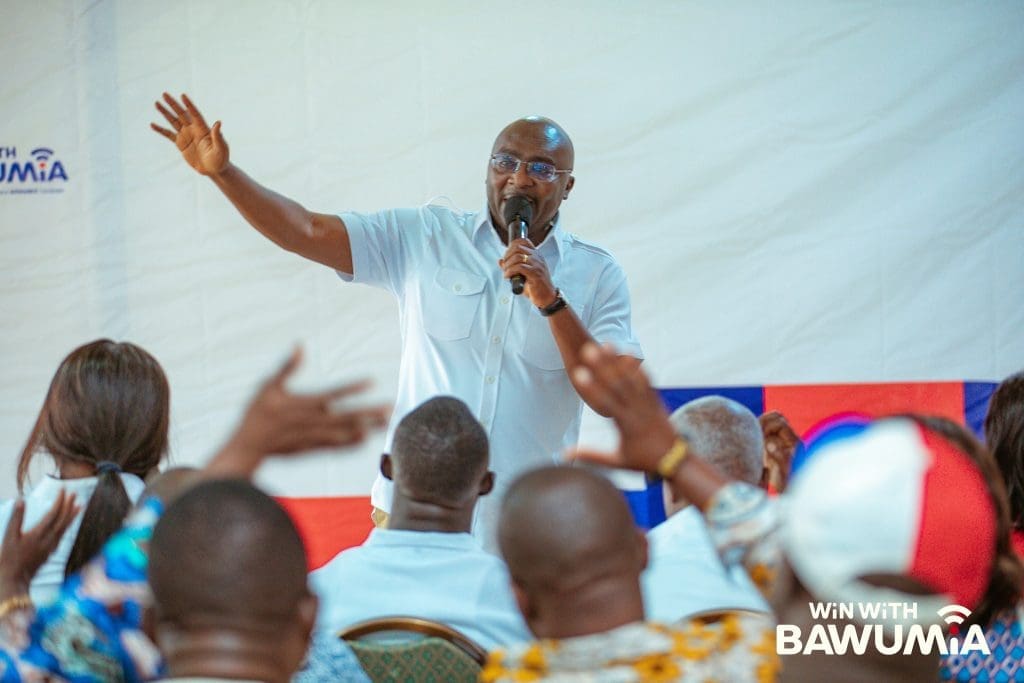
His humility, accessibility, and problem-solving approach have endeared him to both senior party leaders and grassroots supporters. His record as Vice-President and his resilience during the 2024 campaign are seen as assets the party cannot afford to discard.
As chants of “No change!” echoed in Ashanti, as MPs lined up in Eastern, as strategists plotted victory in Central, and as market women issued warnings in Accra, the picture that emerged was that of a candidate whose support cuts across geography, generations, and demographics.
With less than four months to the NPP’s flagbearer election, Dr. Bawumia’s tour has reshaped the narrative of the race.
While the January 2026 contest is still ahead, his momentum has already set him apart as the man to beat.
The question that now lingers is not whether Dr. Bawumia has the support of the party’s base — that much is clear.
The question is whether his rivals can muster enough resistance to halt a campaign that, region by region, seems to be turning into a coronation.

